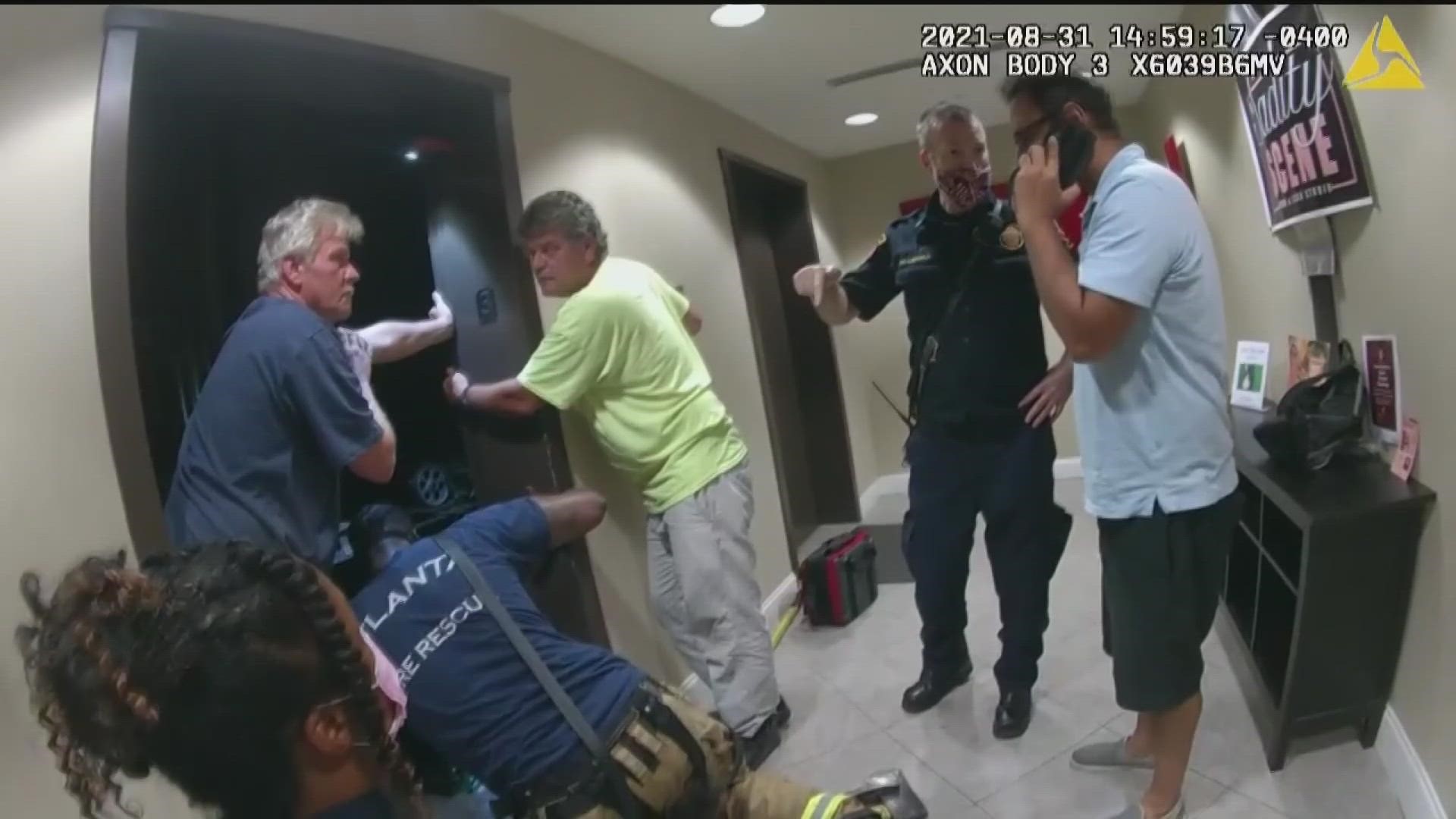ATLANTA — A whistleblower has come forward with evidence that the owners of a building where a teen died in an elevator knew it was unsafe well before the fatal incident.
In Aug. 2021, 18-year-old JaMarcus McFarland died in an elevator malfunction at a mixed-use building called 444 Highland in Old Fourth Ward. Other riders escaped as it dropped, but McFarland became pinned between the top of the elevator and the floor. He died after an hour long attempt to extract him.


As 11Alive previously reported, the elevator, according to state records, was being operated "without current state inspection or operating permit" after the elevator's inspection certificate expired in August of 2020.
“This is a tragic loss because we lost a good young man who had a bright, bright future," said Shean Williams, an attorney with the Cochran Firm in Atlanta. Williams is representing the McFarland family in a lawsuit against the building's management, saying the elevator was overdue for inspection.
“The owners of this building knew about this dangerous condition and had every opportunity to prevent it," Williams said. "It just makes it even worse. You lost your child, but it was preventable.”
Recently, a whistleblower contacted 11Alive with evidence that indicates the building owners skipped critical fixes to save money.


The contractor hired to inspect and make repairs in the building asked that 11Alive protect his identity, but provided evidence showing he’d warned management the elevators were a life safety risk before McFarland's death.
“There had been no maintenance done whatsoever," he said. "[They said] I don't want to spend that type of money for this. We can get it done cheaper. I emphatically told them that this is not something we have time to play with. This is something that has to be done and done immediately. It's not something that you can shop around."
He said while the repairs were being delayed, McFarland was killed in the elevator.
“It was very, very tragic but it was very, very preventable," the contractor said. "There's no way to put a price on a life. And I think that's what was done.”
Williams said the whistleblower's testimony will help their case.
“What your whistleblower shows and proves is they made a conscious decision to put their money, to save cost over the lives of people," he said.
11Alive made numerous attempts over several weeks to contact the building managers and owners of 444 Highland, but never heard back.
Investigators concluded the listed operating capacity for the elevator of 3,000 pounds was exceeded. The weights listed in the report for the 16 passengers, including McFarland, total 3,655 pounds.
Safety codes from The American Society of Mechanical Engineers, which have been adopted by the state of Georgia, require elevators to be able to operate with a passenger load of up to 125 percent of its listed maximum weight, which would total 3,750 pounds.
Along with the weight, wear on the elevator's brake pads and possible oil contamination on the brake pads are listed in the state's report as "possible contributing factors" to the failure.
Williams says the McFarland family hopes to see real change come from their tragedy.
"We have millions of people every day in this state riding elevators and if you don't make sure they're maintained in a proper way, this unfortunate situation can come to somebody else's family and life," he said.
In Georgia, the fine for failing to keep an elevator inspection up to date is $500.
“Which is nothing," the contractor pointed out. "What’s that life worth? There are codes in place to prevent this, but they just need to be enforced.”
Elevator operators have to request those annual inspections. It's not automatically done by the state.
11Alive Investigates uncovered that records show 825 elevators in Atlanta alone are past due for inspection.
“We take a risk every time we're on the elevator," Williams said. "Our job on behalf of this family is to get them justice, get JaMarcus justice, to make sure his legacy lives on, but also to make sure that this doesn't happen to anybody else.”
A bill was introduced in Georgia last year to crack down on overdue inspections, inducing raising the fine from $500 to $2500, but it didn’t pass.
11Alive reached out to the sponsors to ask if they plan to propose something similar again, but had not heard back as of Wednesday night.

